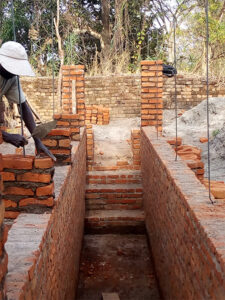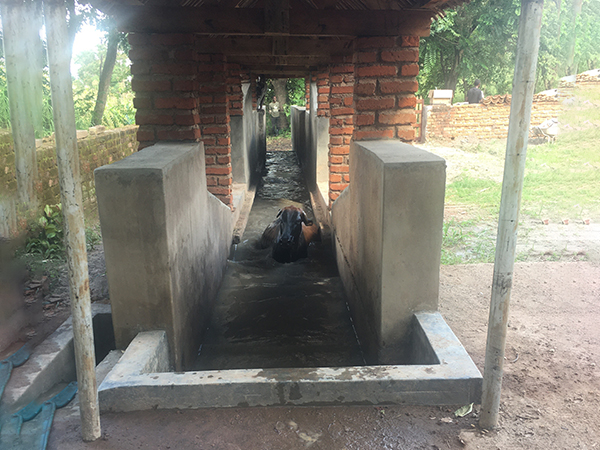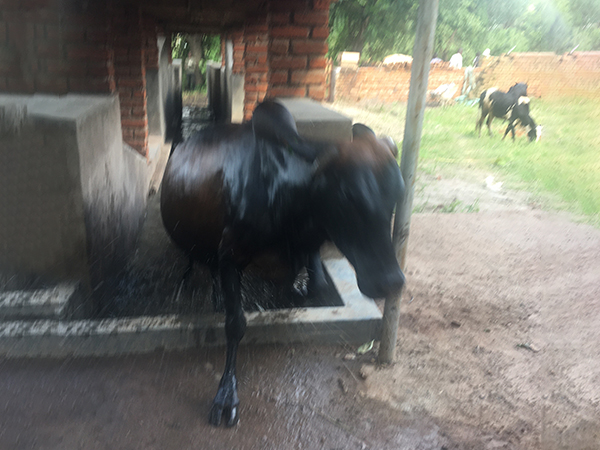 In February 2018, the Sulpician Fathers arrived at St. Anthony’s Kachebere Major Seminary, Mchinji, central Malawi to assume responsibility for the administration of the seminary, the priestly formation program of its seminarians and the philosophy curricula of Kachebere’s historic seminary. They were later joined by Ms. Mary Furlong, a lay woman from the United States, and Sulpician Fr. Julien Zossou from Benin. Already in residence at St. Anthony’s were five other staff members—three Malawians and two Tanzanians—with a seminarian population of 152.
In February 2018, the Sulpician Fathers arrived at St. Anthony’s Kachebere Major Seminary, Mchinji, central Malawi to assume responsibility for the administration of the seminary, the priestly formation program of its seminarians and the philosophy curricula of Kachebere’s historic seminary. They were later joined by Ms. Mary Furlong, a lay woman from the United States, and Sulpician Fr. Julien Zossou from Benin. Already in residence at St. Anthony’s were five other staff members—three Malawians and two Tanzanians—with a seminarian population of 152.
It was a joyful but difficult undertaking. Joyful because the experience of missionary work in a poor country was full of potential. The enthusiasm and exuberance on the faces of the seminarians at the reopening of the seminary that had been closed for almost six months was very encouraging and uplifting. It was tough, though, because of the many challenges that seminaries face.
These challenges included an insufficient number of formation and teaching staff compared to the large number of seminarians, and a poor communication system, e.g., no integrated wireless internet system throughout the large campus. There were also the familiar challenges of inadequate finances, and an aging infrastructure. Apart from formation of future priests, the seminary also was like a small industry employing many workers in the farm, the garden, the carpentry, the motor vehicle garage, the tailoring shop, as well as numerous domestic workers (e.g., cooks, guards, maintenance workers).
While the number of formation and teaching staff remains challenging, it has significantly improved with the collaboration of the Malawi Conference of Bishops (ECM) and the Sulpician Fathers. Communication has also improved with the installation of modern wireless internet facilities. Strategic funding was acquired for the necessary roof repair and select maintenance of major seminary buildings. These projects are ongoing. With the help of the ECM, the Sulpicians, the Pontifical Mission Society (POSPA) and the Church in Need—among other donors—these and other improvements followed.
A diocese from Germany funded the renovation of resident toilets and showers, while the Pontifical Mission Society of St. Peter the Apostle (POSPA) granted the seminary an extraordinary subsidy for the renovation of part of the roof. Seminary transports improved with the acquisition a 15-seat bus from Sulpician donor, a vehicle supplied by The Church In Need, and a 30-seat bus from the Superior General’s donation.
Massive productivity was reported from the seminary’s farm in terms of crops (with 1000 x 50 kg bags of maize/corn projected) and animals. A plunge dip tank for the cattle was designed to accommodate the need to protect the animals from diseases. A plunge dip was constructed that allowed the complete immersion of livestock in a liquid that contains a parasiticide. Note: Plunge dips are either fix and made of concrete (typical for cattle and sheep) or portable (usually metallic, mainly for sheep and seldom for pigs).
Another major challenge, though, is the continued use of wood for cooking. While Kachebere has vast land with a large forest, it is slowly being depleted. Every day a cohort of workers is assigned to get firewood. They cut many trees and transport the wood on the tractor to the kitchen before it is chopped into smaller pieces for use in the wooden stoves. With so much concern to save the environment, a different system needs to be implemented to preserve the forests and contribute to caring for Mother Earth. Even though there is an inconsistent supply of electric power from the government, electric stoves may be used whenever there is hydroelectricity. However, a more user-friendly system such as biogas technology may be a good alternative.
There have been several of improvements at Kachebere in the past three years, despite Covid‑19. New partnerships emerged, e.g., the ECM and the US Sulpician Province, as well as new stewardship initiatives, cultural, academic, and practical. Building on the seminary’s firm foundation, stability has been attained, and strategic plans developed. Though priority projects remain, the heartening aspect is that this historic and venerable seminary retains its enormous potential and capacity for self-sustainability—preserving its mission.






